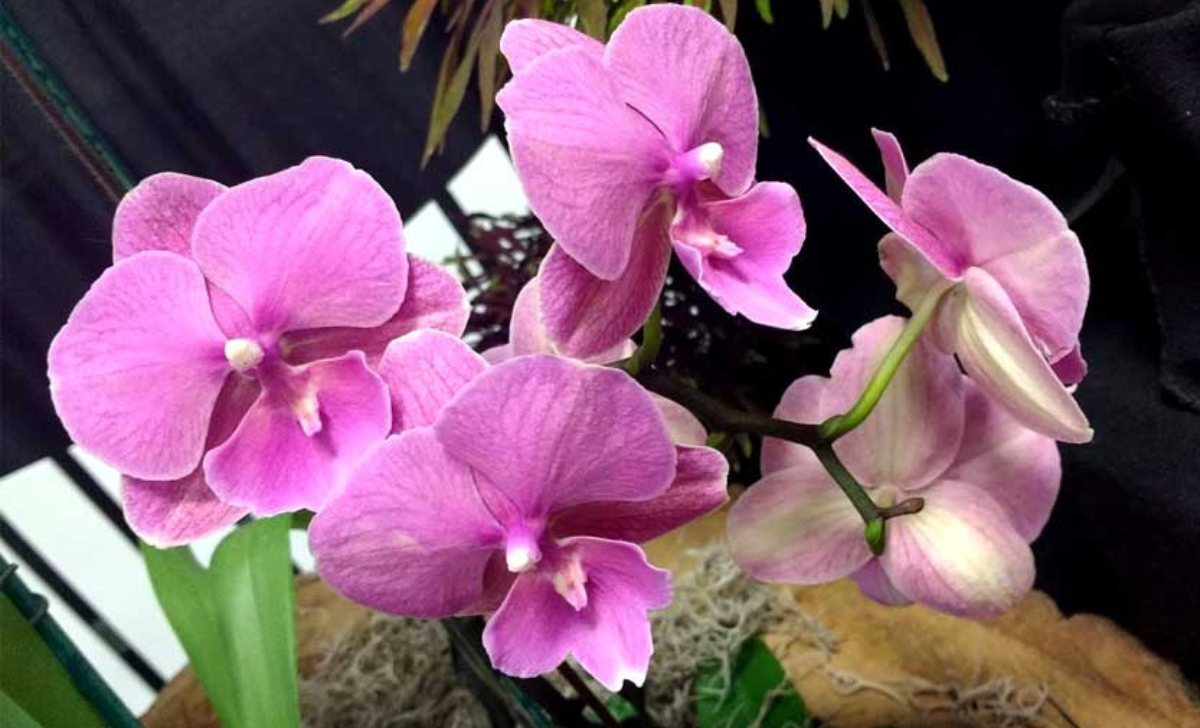All Purpose Orchid Growing Starter Kit - Includes Instruction Sheet
$29.99
Orchids, with their exotic beauty, have gained immense popularity as one of the trendiest blooming plants. However, they are often perceived as intimidating for beginners. The truth is, with the right information and approach, orchids can thrive and bloom for years, adding elegance and sophistication to any home.
Essential Supplies for Orchid Care
In this beginner’s guide to orchid care, we will cover the fundamental aspects of proper care, including potting, lighting, feeding, propagation, and pest control. Whether you’re just starting out or a seasoned orchid enthusiast, this article aims to equip you with the knowledge and skills to keep your orchids healthy and beautiful.
Mastering the Art of Proper Potting
One of the critical aspects of orchid care is selecting the right potting mix. Orchids require a well-draining mix that allows air circulation around their roots. Specialized orchid mixes containing materials like bark, sphagnum moss, and perlite are recommended for their ideal moisture retention and drainage balance. Avoid using regular potting soil, as it can become waterlogged and suffocate the orchid roots.
Lighting Requirements for Healthy Orchids
Proper lighting is essential for orchids to thrive. Different species have varying light requirements, and some can tolerate lower light conditions than others. If you’re growing orchids indoors, consider supplementing natural light with artificial lighting to meet their needs. Additionally, adjust your fertilization regimen based on the light levels your orchids receive.
Feeding Orchids: Nutrient Needs and Fertilization

Feeding your orchids with the right nutrients is crucial for their growth and blooming. Use a balanced orchid fertilizer and follow the recommended dilution instructions. Fertilize your orchids during the growing season, typically from spring to early autumn. Be cautious not to over-fertilize, as this can lead to salt buildup and harm your orchids.
Understanding Orchid Growth and Propagation
Orchid propagation can be an exciting but challenging endeavor. You can propagate orchids through division or by growing keikis, small plantlets that develop from the mother plant’s stem or base. Division involves separating the orchid into smaller sections, each with its roots and foliage. Keikis can be left to grow on the mother plant or potted separately once they have developed their roots and leaves. Understanding the growth stages of orchids is crucial for successful propagation, as each new plant represents a potential rebloom and continuation of the orchid’s legacy.
Identifying and Dealing with Orchid Pests
Maintaining proper conditions and monitoring for pests and diseases is essential for the long-term success of your orchids. Overwatering is a common issue that can lead to root rot, so ensure your potting mix is well-draining, and allow the top few inches to dry out before watering again. Orchids should be watered in the morning to allow excess moisture to evaporate during the day.
Common orchid pests include spider mites, scale insects, and mealybugs. Regular monitoring and treatment with insecticidal soap or other appropriate products can help control these pests. Additionally, fungal infections can occur in humid or poorly ventilated conditions, so proper air circulation and avoiding overwatering are crucial preventative measures.
Effective Strategies for Preventing Orchid Diseases
Preventing orchid diseases is essential for their well-being. Integrated pest management, which includes natural remedies like neem oil, insecticidal soap, and beneficial insects, is recommended as an effective approach to controlling orchid pests and diseases. These methods can reduce the need for chemical pesticides and promote a healthier environment for your orchids.
Commonly Asked Questions
Here are answers to some frequently asked questions about orchid care:
1. Can orchids be grown in water instead of soil?
Hydroponic cultivation using water culture techniques may be possible for some orchid species, but it is not recommended for beginners. Orchids require a specific balance of nutrients, humidity, and light, which can be challenging to maintain in a water-only environment.
2. How often should orchids be watered?
Orchids should be watered according to the potting medium. Allow the medium to dry out slightly before watering again. Overwatering can lead to root rot and damage. The frequency of watering varies based on humidity and temperature.
3. Can orchids be grown in low-light conditions?
Orchids have varying light requirements, and some species can tolerate lower light conditions than others. If growing indoors, consider supplementing natural light with artificial lighting to meet their needs. Adjust fertilization based on light levels.
4. How do you know when an orchid needs to be repotted?
Signs that an orchid needs repotting include roots growing out of the pot, yellowing or drooping leaves, and a potting mix that has broken down. Repotting benefits orchids by providing fresh nutrients, preventing root rot, and promoting healthy growth.
5. What is the best way to control pests and diseases on orchids?
Integrated pest management, which includes natural remedies like neem oil, insecticidal soap, and beneficial insects, is the most effective approach to controlling orchid pests and diseases. These methods can reduce the need for chemical pesticides and create a healthier environment for your orchids.
Orchid care is a rewarding journey that allows you to enjoy the beauty of these exotic plants for years to come. With the right information and care, your orchids can flourish, adding elegance and sophistication to your home.
If you’re a beginner or a seasoned orchid enthusiast, this guide equips you with the knowledge and skills needed for successful orchid care. From selecting the right species to understanding propagation and dealing with pests, you’ll find comprehensive guidance to ensure your orchids thrive.


